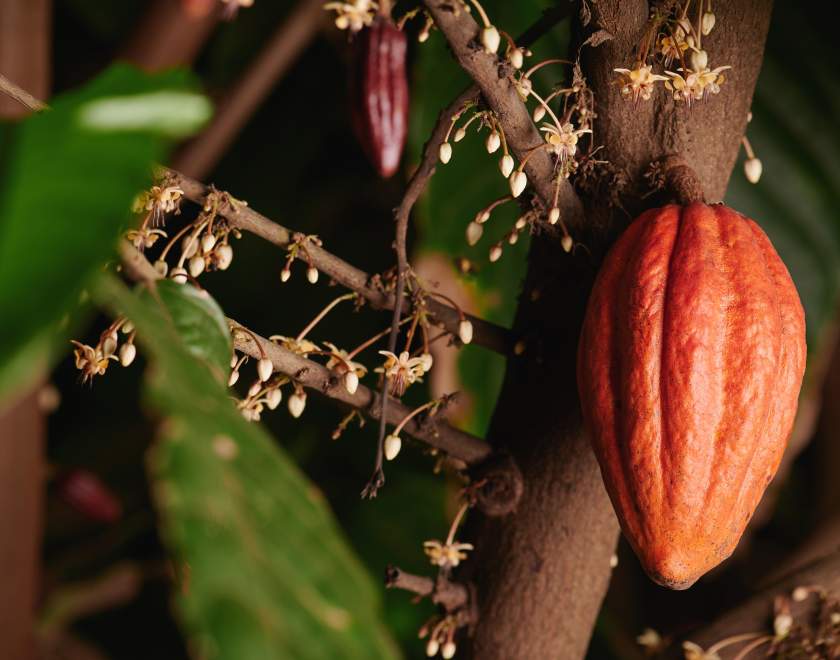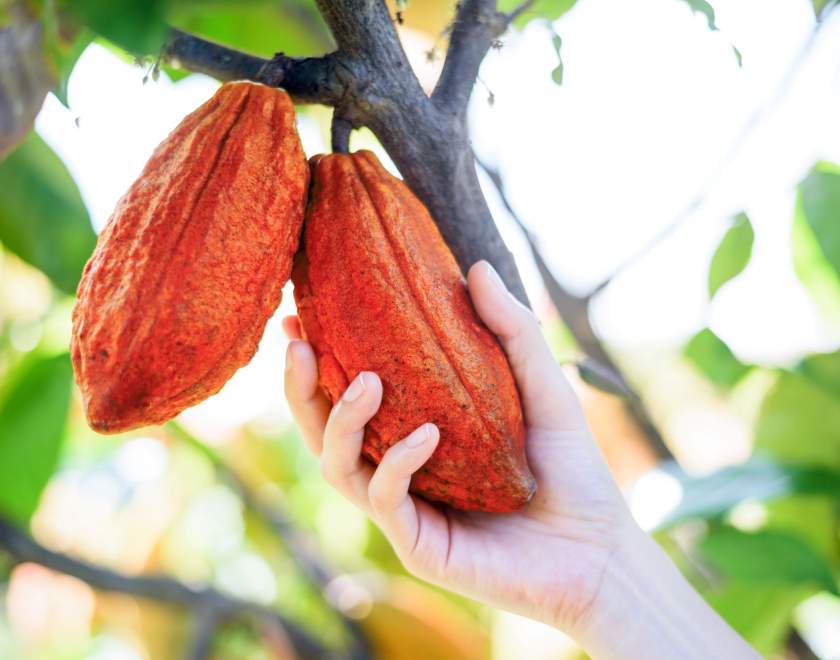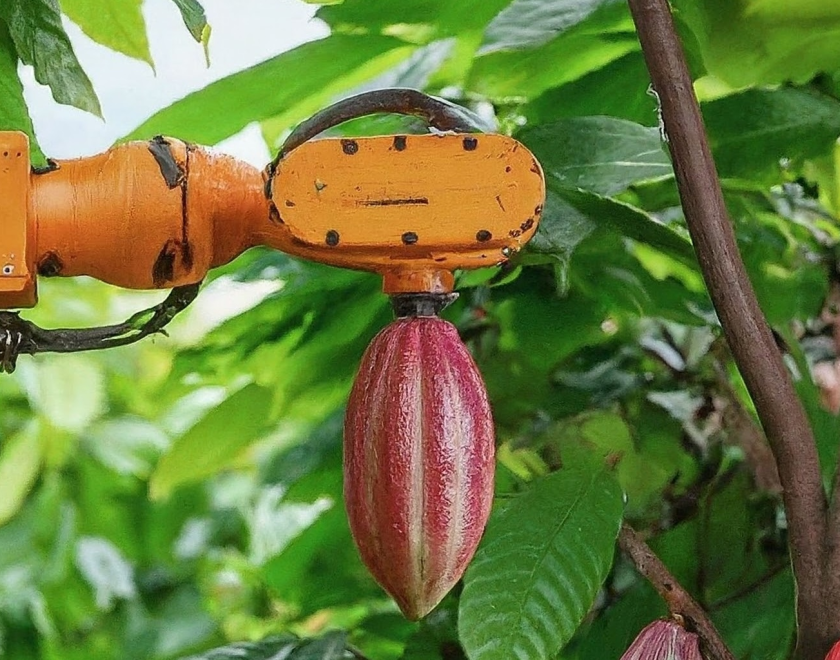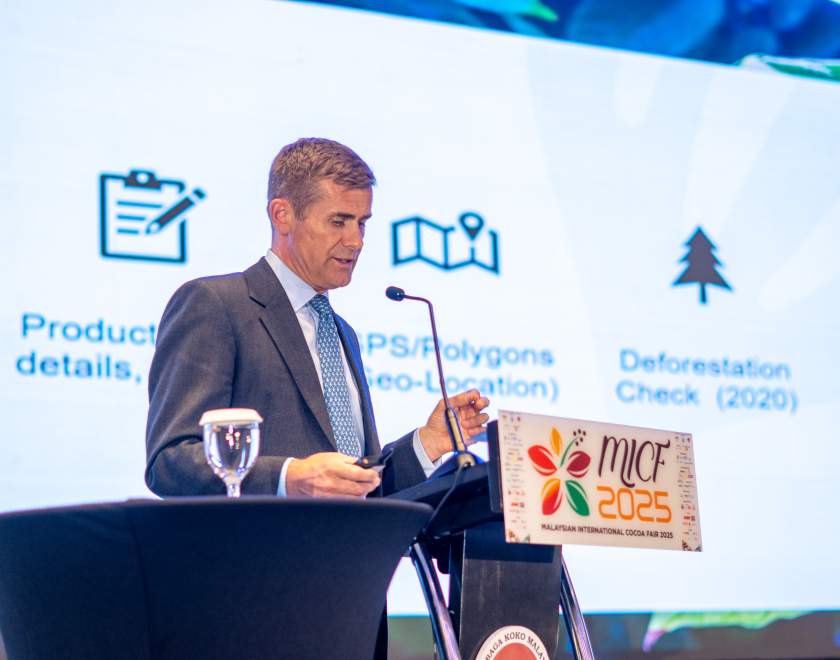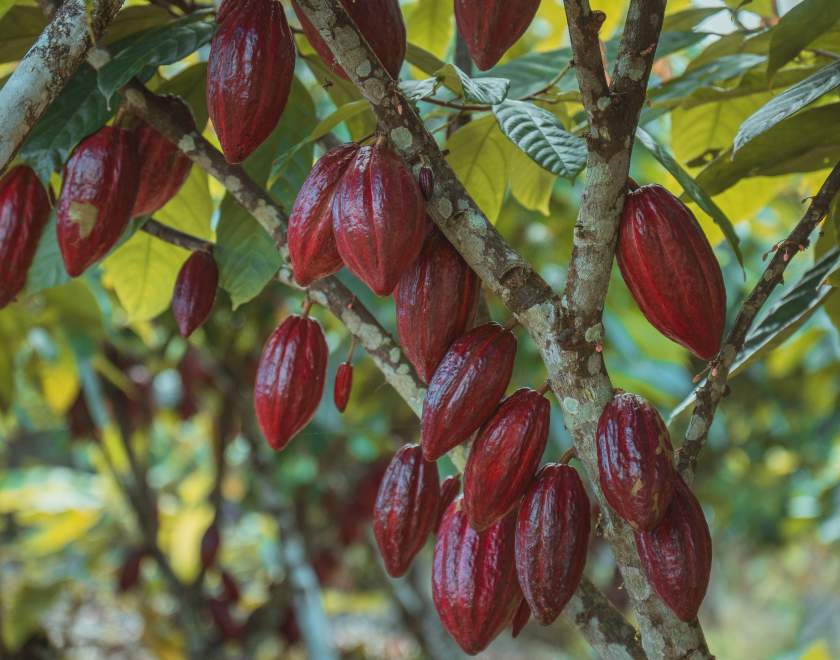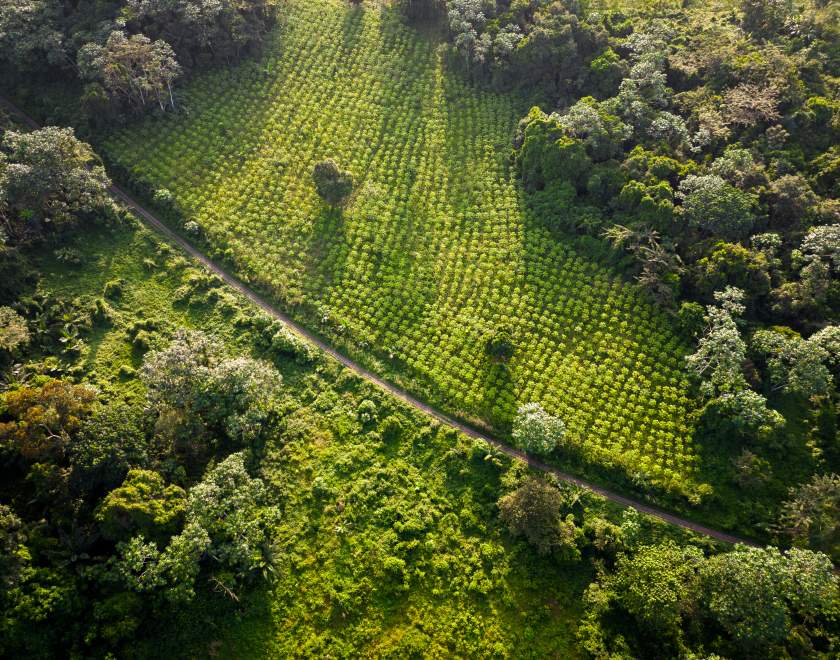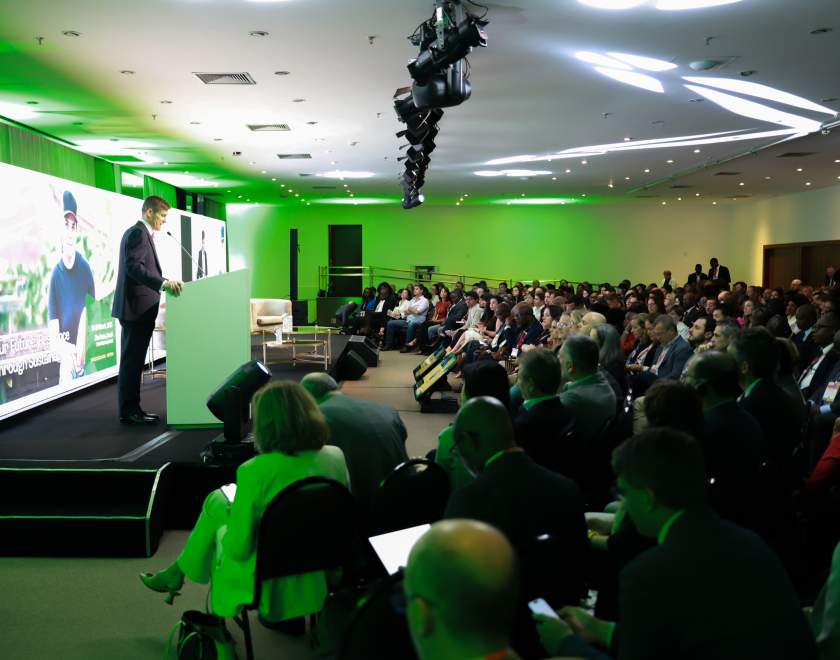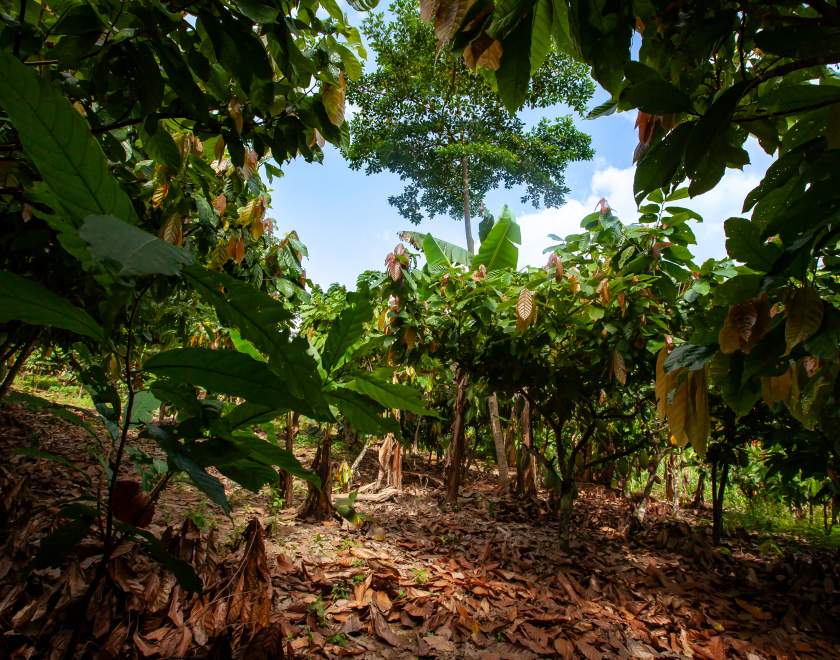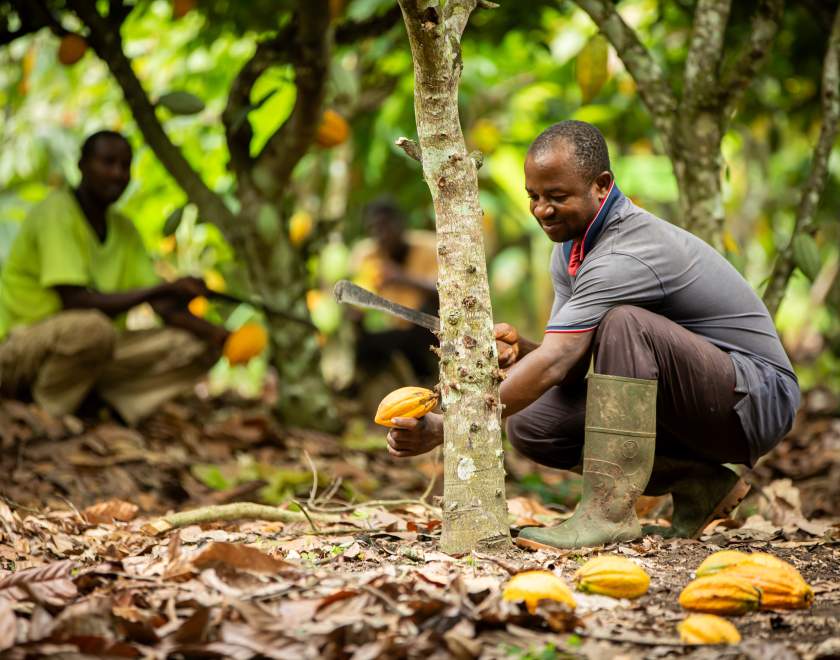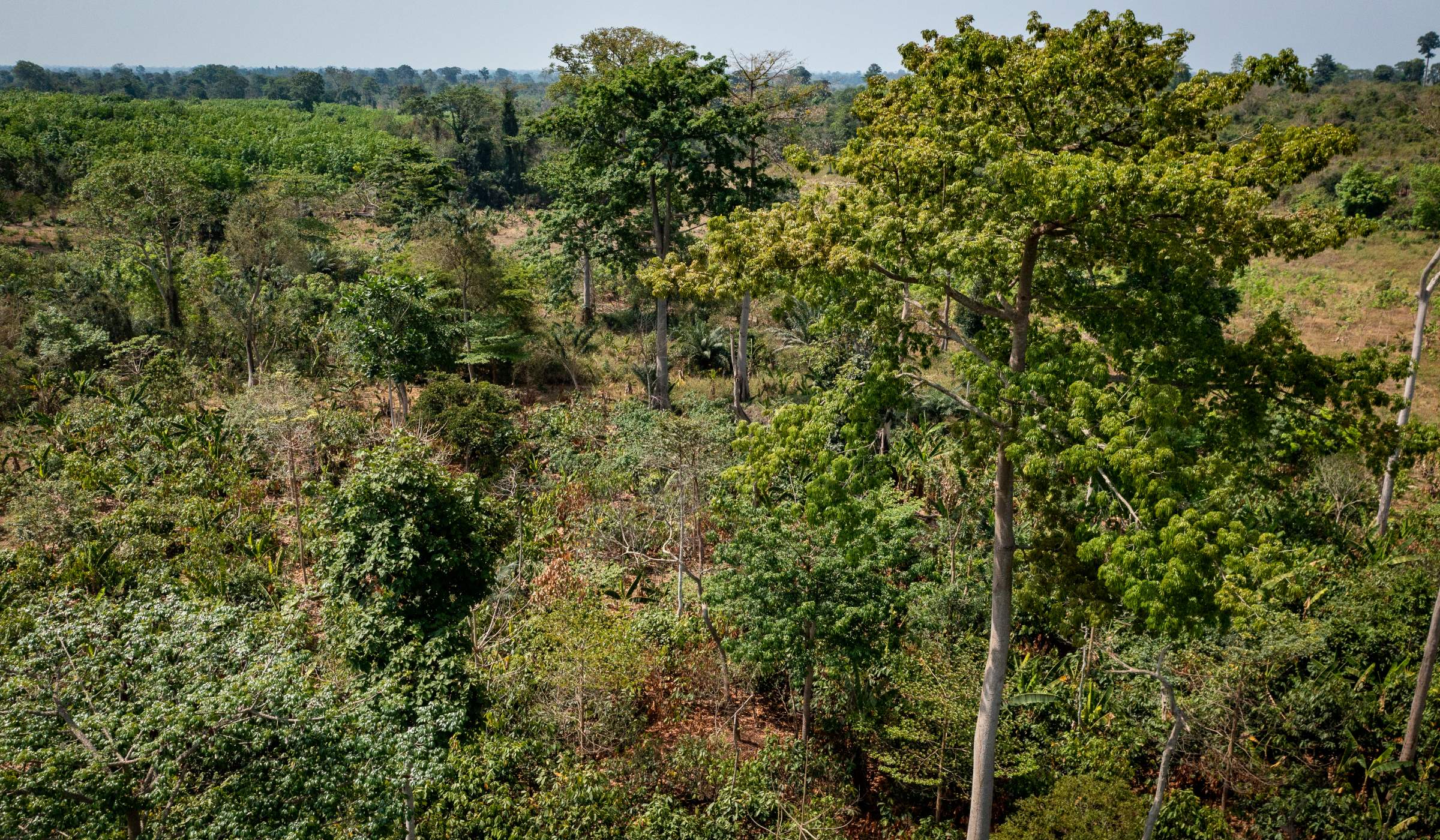
In the early morning haze of Ondo’s cocoa belt, farmers walk familiar paths to groves where cocoa trees have stood for generations.
But the forests that once shaded those paths are thinning.
Across Nigeria’s cocoa-producing states, the pressure to produce more is colliding with the urgent need to preserve natural ecosystems – leaving communities, landscapes and long-held traditions caught in the middle. Still, change is taking root, with farmers and state officials alike beginning to explore ways to balance cocoa production with forest preservation.
This transformation is unfolding against the backdrop of Nigeria’s evolving forest governance landscape. Like many nations balancing economic growth with environmental responsibility, Nigeria faces complex structural challenges: overlapping land rights, limited enforcement capacity and a need for deeper community engagement. What stands out today is not the scale of these challenges; it’s the momentum and commitment to address them together.
The World Cocoa Foundation (WCF) supports this momentum through its first direct initiative in Nigeria: The Deforestation-Free Cocoa Initiative (DFCI). In collaboration with the UK-funded Propcom+ programme, DFCI is helping catalyse a new model of participatory forest governance – one that is inclusive, practical and scalable. The Cross River State Forestry Commission, and strong buy-in from the Ondo State government, are testament to this momentum.
“There’s a growing awareness in places like Ondo State that deforestation, especially from cocoa production, is a real challenge,” says Dr. Mawuli Coffie, WCF Nigeria Lead and Ghana Country Director.
“At the same time, we are seeing encouraging enthusiasm from both government and the private sector to do things differently. Our role is to support that shift by sharing knowledge on sustainable production and agroforestry, and by helping strengthen forest protection systems that are currently under-resourced. This includes updating old forest maps and building capacity so that increasing cocoa productivity doesn’t have to come at the expense of our forests.”
Efforts to strengthen forest governance in Nigeria are shaped by a mix of environmental, legal and institutional dynamics common across many cocoa-producing countries:
- Evolving land tenure systems, particularly in forested rural areas.
- Pressure from both industrial and smallholder agriculture.
- Limited technical capacity and financing for forest monitoring.
- A growing need to align national policies with global sustainability standards.
Recognising these realities, DFCI takes a solutions-oriented approach. It focuses on co-creation of solutions by key actors and stakeholders, enabling cocoa-growing landscapes to thrive without further forest loss.
A Participatory Governance Model
Central to DFCI is a locally driven model of community forest governance. By promoting legal empowerment, shared responsibility and gender-sensitive leadership, these groups play a pivotal role in reducing deforestation risks and promoting regenerative practices. DFCI also helps to establish Community Resource Management Areas (CREMAs) – landscape-level zones where sustainable farming and forest conservation go hand in hand.
DFCI works alongside state forestry departments to reinforce existing efforts and help align policies with international frameworks like REDD+. In both Ondo and Cross River, WCF and its partners will be supporting efforts to update forest maps, co-develop land-use strategies and integrate sustainability targets into state-level cocoa plans.
This institutional collaboration ensures that local innovation is backed by strong public systems and clear policy direction.
To support transparency and results-based planning, DFCI is introducing community-based Monitoring, Reporting and Verification (MRV) systems that combine traditional knowledge with modern digital tools. These systems allow communities to monitor forest health, track sustainable cocoa production, and feed into traceability platforms that meet international buyer requirements.
This approach reinforces accountability while empowering local stakeholders to play an active role in managing their environment.
Outcomes and Early Momentum
Though still in its first phase, DFCI is showing strong early progress:
- Stakeholder mapping and engagement across both states.
- MOUs signed with the governments of Cross River and Ondo.
- A collaboratively developed roadmap guiding next steps in implementation.
These milestones reflect not just technical progress, but a broader alignment among farmers, state authorities, cocoa companies, and civil society organisations – an essential foundation for long-term impact.
Broader Implications for Climate, Biodiversity, and Trade
As Nigeria deepens its climate and biodiversity commitments, DFCI offers a replicable model for sustainable land use. By supporting deforestation-free cocoa production, it contributes to global efforts to reduce emissions, protect ecosystems and meet new trade standards such as the EU Deforestation Regulation (EUDR).
For the private sector, it presents a credible path to source cocoa more sustainably while building stronger links with producers. For donors and investors, it offers a vehicle to support landscape resilience, rural livelihoods, and nature-based solutions.
“It’s not just about trees – it’s about building trust, capacity, and inclusive systems,” says Dr. Coffie. “This model shows that transformation is possible when we bring communities, governments, and companies together around a shared vision.”
DFCI represents a new chapter for cocoa and forest management in Nigeria. By supporting local leadership, aligning public and private goals, and building the systems needed for accountability and scale, it is laying the groundwork for a more resilient, inclusive cocoa economy.
